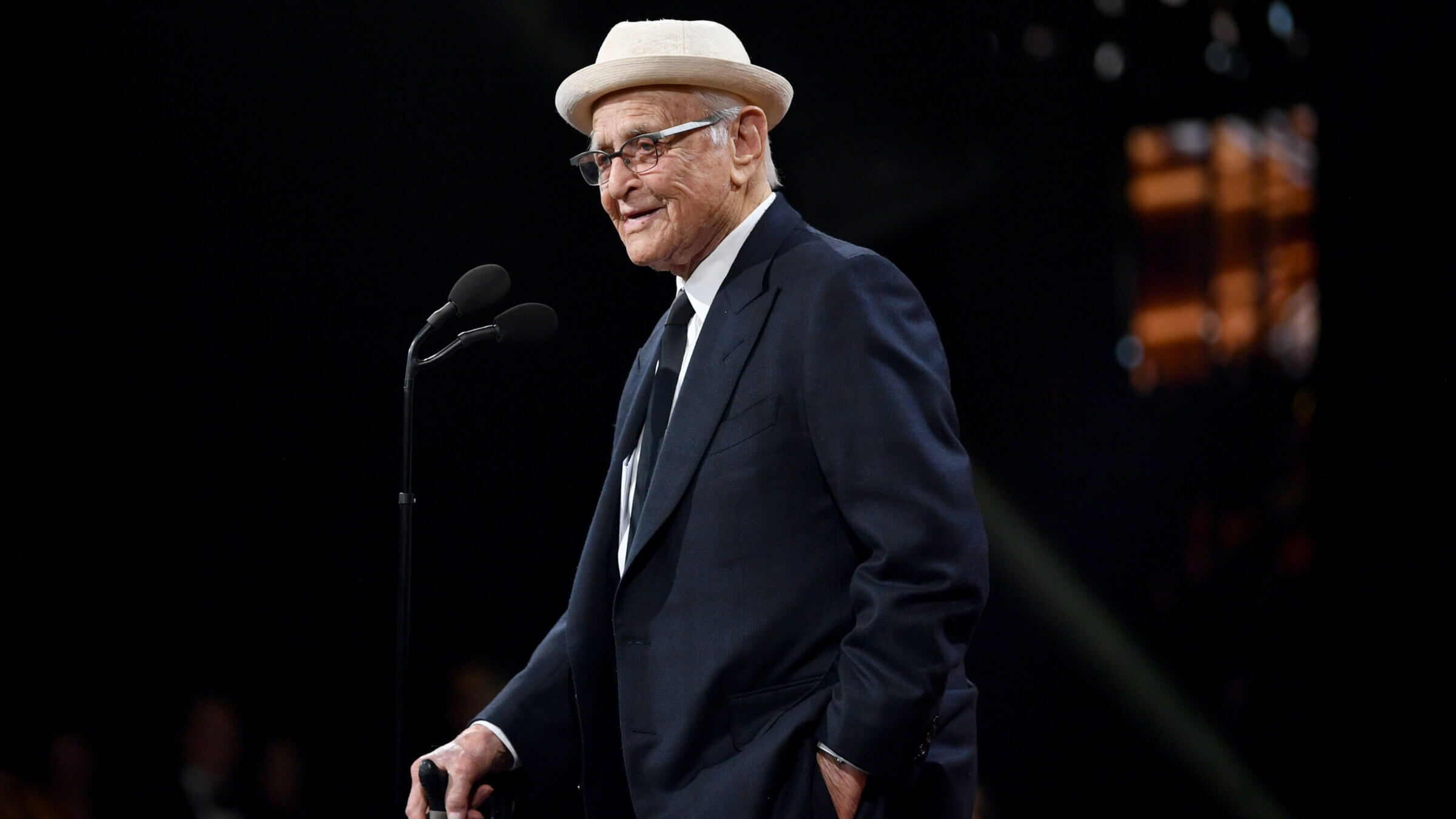Norman Lear’s early experience of antisemitism made him America’s conscience
The ‘All in the Family’ and ‘Jeffersons’ producer died at 101

Norman Lear in 2019. Photo by Emma McIntyre/BAFTA LA/Getty Images for BAFTA LA
Norman Lear, the prolific producer who dominated the TV landscape throughout the 1970s and ’80s, and who linked his socially aware sitcoms to his early awareness of antisemitism, died Tuesday at 101.
Lear, who created or produced such shows as All in the Family, The Jeffersons, Mary Hartman, Mary Hartman and One Day at a Time, often broached social issues through comedic premises. While most of his characters, from the bigoted Archie Bunker to the Black working-class Sanfords, weren’t Jewish, Lear always hinted at a Yiddishkeit in his outlook, and even in the name of his production company, T.A.T. (Tukhes Afn Tish) Communications.
In 2014, Lear told the Forward, in an anecdote repeated elsewhere, that his social consciousness was formed at a young age, when he heard the antisemitic priest Father Coughlin on the radio.
“At 9 I learned that people disliked me because of my Jewishness,” Lear said. “It was a profound discovery and influenced everything I ever felt about the human species, the human condition. My sympathies, my empathy went out to people who are automatically disliked just because of who they are.”
Norman Milton Lear (called “Nussie Mush” by his mother) was born July 27, 1922, in New Haven, Connecticut, to parents Jeanette and Hyman Lear. When Lear was 9, the same age when he heard Father Coughlin, Hyman went to jail for three years for selling fake bonds. Following his father’s imprisonment, Lear went to live with family in Chelsea, Massachusetts. He attended Weaver High School in Hartford, Connecticut, where he wrote the class play and had a humor column in the paper, before going on to Emerson College. He left in 1942 to enlist in the Air Force, where he served as a B-17 radio operator and gunner.
Returning home from the war, Lear began a career in public relations before shifting to comedy writing for shows like The Colgate Comedy Hour. In 1968, Lear was nominated for an Academy Award for his screenplay to the film Divorce American Style. That same year saw the release of the film The Night They Raided Minsky’s, directed by William Friedkin with a script by Lear, Sidney Michaels and Arnold Schulman.
In 1971, Lear debuted All in the Family, a series centered around prickly patriarch Archie Bunker (loosely based on Lear’s father), whose prejudice was challenged by his lefty son-in-law and his neighbors the Jeffersons. From All in the Family came a number of hit spin-offs like The Jeffersons, Maude and Archie Bunker’s Place.
These shows became known for episodes that addressed social issues head-on, including Bunker’s bigotry, the racism faced by the Jeffersons and a controversial episode of Maude where the title character has an abortion. Asked about his choice to air these issues, Lear often remarked that he was merely reflecting dinner table conversations had across America.
“We’re not talking about anything that isn’t a topic in the average American household,” Lear told Vox’s Emily St. James in 2015. He would often tell his writers to work with real problems, noting how there was “comedy in the human condition.”
Lear won six Primetime Emmys, a Golden Globe, two Peabodys and a Kennedy Center Honors over his career. For the last accolade, in 2017, Lear caused a stir by refusing to attend the ceremony in protest, as he didn’t want to be honored by Donald Trump. In the end, Lear made the ceremony and Trump skipped it.
In his 90s, Lear saw a revival for a new generation, with a critically acclaimed Netflix reboot of his series One Day at a Time, now centering a Cuban American family, and specials recreating classic episodes of All in the Family, Good Times and The Jeffersons and featuring Jamie Foxx and Marisa Tomei.
While a beloved figure, Lear was not without personal controversy. Good Times creator Eric Monte accused Lear of stealing his idea for The Jeffersons and for being a racist in a 2010 interview with Up Front. Monte sued Lear and CBS and the suit was settled for $1 million, Monte told the Los Angeles Times.
Beyond his work in entertainment, Lear, who owned one of the few surviving copies of the Declaration of Independence, and toured it through 50 states, was very active in advocacy and civics. He founded the progressive group People for the American Way in 1981 to counter what he saw as an emergent Christian right. While a lifelong liberal, Lear described himself to the Forward as “a bleeding heart conservative.”
“Don’t f–k with my First Amendment, my Bill of Rights,” Lear said, in a piece that addressed his Jewish upbringing. “I care about the other guy, and that’s the essence of every religion.”





















